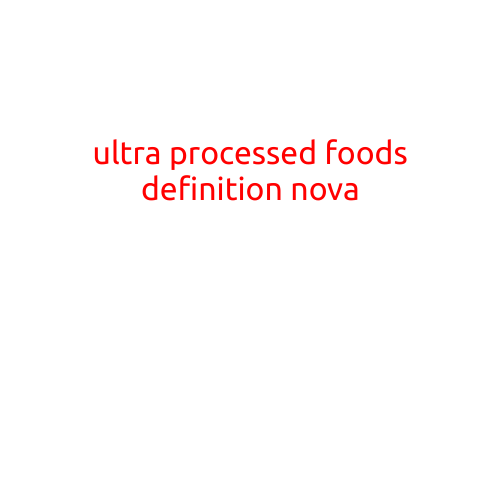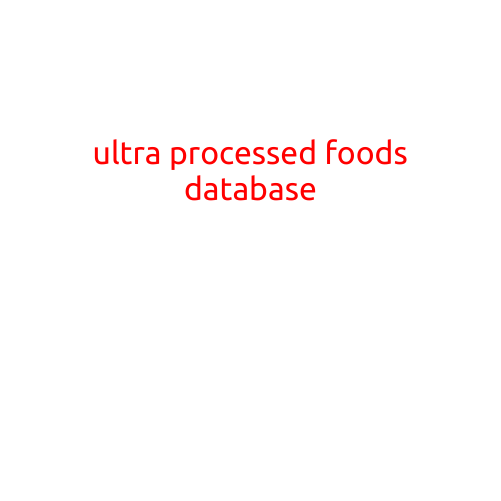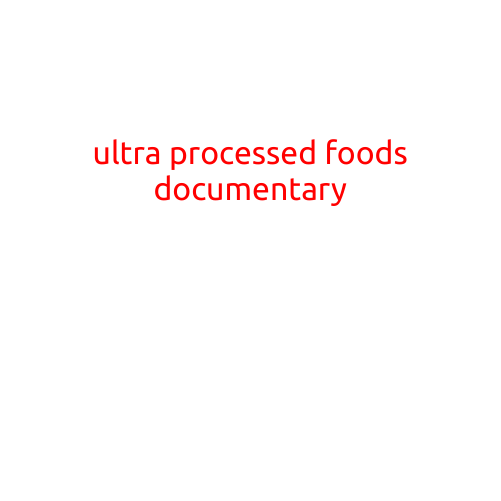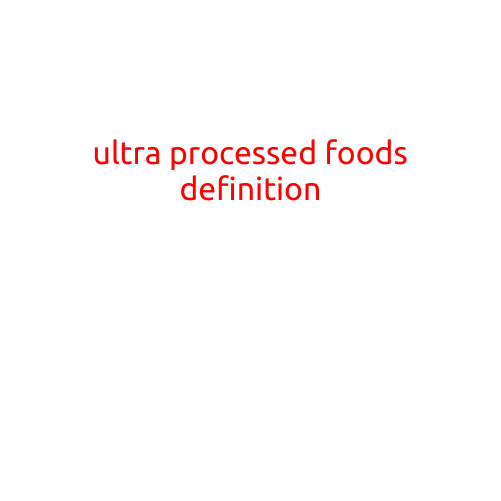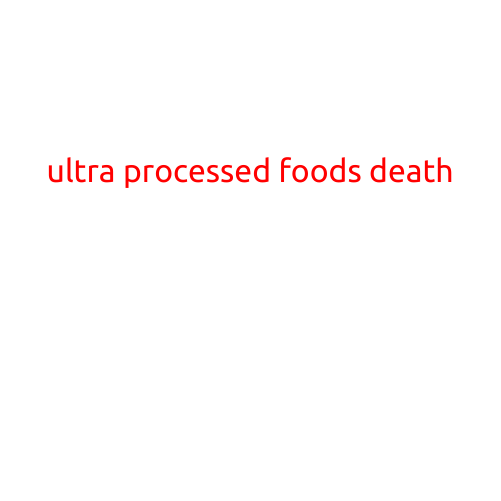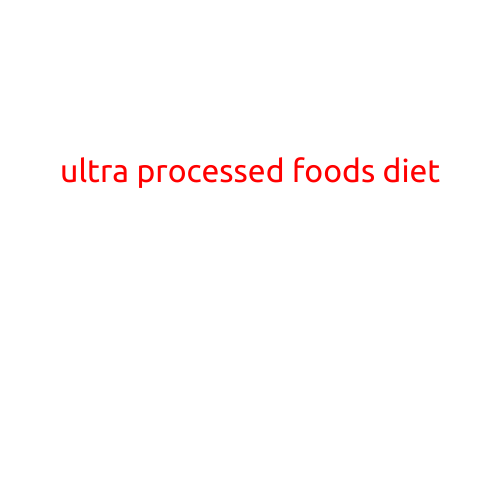
The Ultra-Processed Foods Diet: A Recipe for Unhealthy Living
In recent years, the term “ultra-processed foods” has become increasingly prominent in the health and nutrition world. These foods have been shown to have a significant impact on our overall health and well-being, and may even contribute to chronic diseases such as diabetes, heart disease, and cancer.
But what exactly are ultra-processed foods, and how can you avoid them? In this article, we’ll take a closer look at the Ultra-Processed Foods Diet, what it entails, and why it’s important to adopt healthier eating habits.
What are Ultra-Processed Foods?
Ultra-processed foods are defined as industrially formulated products that contain little to no whole foods and are often made from a combination of ingredients that are unfamiliar to humans. These foods are typically high in calories, added sugars, salt, and unhealthy fats, and are low in essential nutrients like fiber, vitamins, and minerals.
Examples of ultra-processed foods include:
- Sugary snacks like chips, crackers, and cookies
- Frozen meals like pizza, TV dinners, and microwaveable meals
- Baked goods like cakes, pastries, and muffins
- Sugary drinks like soda, sports drinks, and energy drinks
- Processed meats like hot dogs, sausages, and bacon
- Refined grains like white bread, sugary cereals, and pasta
The Health Risks of Ultra-Processed Foods
Consuming ultra-processed foods on a regular basis has been linked to a host of serious health problems, including:
- Obesity: Ultra-processed foods are often high in calories and low in nutrients, making them a recipe for weight gain and obesity.
- Diabetes: The high amounts of added sugars in ultra-processed foods can lead to a rapid spike in blood sugar levels, increasing the risk of developing type 2 diabetes.
- Heart Disease: The high amounts of saturated and trans fats in ultra-processed foods can increase the risk of heart disease and stroke.
- Cancer: Some studies have suggested that consuming ultra-processed foods may increase the risk of certain cancers, including colon, breast, and pancreatic cancer.
- Mental Health: A diet high in ultra-processed foods may contribute to mental health issues like anxiety, depression, and mood disorders.
The Ultra-Processed Foods Diet: A Recipe for Unhealthy Living
The Ultra-Processed Foods Diet is a diet that consists mainly of ultra-processed foods. This diet is characterized by:
- High consumption of sugary drinks and snacks
- High consumption of refined grains and processed meats
- Low consumption of whole foods like fruits, vegetables, whole grains, and lean proteins
- High calorie intake, often leading to weight gain and obesity
Break the Cycle
Breaking the cycle of ultra-processed foods can be challenging, but it’s not impossible. Here are some simple tips to help you get started:
- Read food labels: Become familiar with ingredient lists and avoid products that contain unfamiliar ingredients.
- Cook from scratch: Cooking meals from scratch using whole foods can help you avoid ultra-processed foods.
- Focus on whole foods: Prioritize whole foods like fruits, vegetables, whole grains, and lean proteins.
- Limit sugary drinks: Avoid sugary drinks like soda, sports drinks, and energy drinks.
- Be mindful of portion sizes: Pay attention to serving sizes and avoid overeating.
Conclusion
The Ultra-Processed Foods Diet is a recipe for unhealthy living, and it’s important to take steps to avoid these foods. By reading food labels, cooking from scratch, focusing on whole foods, limiting sugary drinks, and being mindful of portion sizes, you can take control of your diet and adopt healthier eating habits. Remember, a healthy diet is a key component of overall health and well-being, and it’s never too late to make a positive change.
